
 Messi or Ronaldo? Ronaldo or Messi? Forget nature v nurture, leave v remain, Corrie v EastEnders, the most hotly contested question of our day and age comes down to the choice between a footballer from Argentina and one from Portugal (who said that society hasn’t progressed?). And it is a question that can divide opinion even among the most united in all other opinions. Messi devotees will point to his superior assists, his dribbling, his team play and his greater individual awards, whilst Ronaldo supporters will cite his club goals, his success in multiple leagues, his incredible athleticism and a superior international record. And whilst debates over who is better are likely to continue for as long as these two keep going – or one of them retires – Ronaldo has ensured his status as ‘greatest of all time’ in Euros history, with a host of records tumbling in his first outing in Euro 2020. Sorry, Messi, this is one arena in which you can’t compete with Ronaldo, in fact no one can.
Messi or Ronaldo? Ronaldo or Messi? Forget nature v nurture, leave v remain, Corrie v EastEnders, the most hotly contested question of our day and age comes down to the choice between a footballer from Argentina and one from Portugal (who said that society hasn’t progressed?). And it is a question that can divide opinion even among the most united in all other opinions. Messi devotees will point to his superior assists, his dribbling, his team play and his greater individual awards, whilst Ronaldo supporters will cite his club goals, his success in multiple leagues, his incredible athleticism and a superior international record. And whilst debates over who is better are likely to continue for as long as these two keep going – or one of them retires – Ronaldo has ensured his status as ‘greatest of all time’ in Euros history, with a host of records tumbling in his first outing in Euro 2020. Sorry, Messi, this is one arena in which you can’t compete with Ronaldo, in fact no one can.
Most appearances – As Ronaldo led his Portugal side out on Tuesday evening against Hungary, it was his 22nd appearance in the tournament proper. He already held the record, ahead of Bastian Schweinsteiger (18) and Gianluigi Buffon (17), but with a possible further 6 games ahead, Ronaldo could extend his advantage and reach some 28 appearances by the tournament’s end. Whether or not, Portugal qualify from the group, should Ronaldo feature in the two remaining group-stage games, he will also surpass Gianluigi Buffon’s record of 58 appearances, which includes qualifying, with Ronaldo currently sitting on 57.
Most tournaments played – Euro 2020 marks Ronaldo’s fifth – yes, fifth – finals campaign. Whilst a host of players, from Lothar Matthaus to Peter Schmeichel to Olof Mellberg, have racked up an impressive four campaigns, Ronaldo is the only man in history to achieve a breathtaking five campaigns, spanning some sixteen years, with his first appearance in Portugal 2004 aged 19. Now 36, Ronaldo will have to wait another three years until the next Euros in Germany 2024, which may be a bit of a stretch for a then 39-year-old Ronaldo, but I wouldn’t entirely count against it – after all, he hasn’t yet got the oldest player records.
First player to score at five consecutive Euros – When Ronaldo stepped up to slot home a penalty in the 87th minute in the match against Hungary, he became the first player to score at five consecutive Euros. No other player has scored at more than three consecutive Euros, with Wayne Rooney and Thierry Henry amongst those holding that honour, whilst a host of players, including Dennis Bergkamp and Roman Pavlyuchenko, have scored at two. Having first scored against Greece in Euro 2004, Ronaldo also charted the longest gap between first and last Euros goals of some 17 years, which he may extend if he adds any more to his name this tournament.
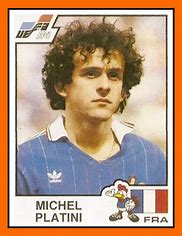 All-time top scorer at the Euros – I must admit to some surprise that the goalscoring record for the Euros previously stood at 9, held by Michel Platini. Ronaldo obviously shared my surprise and sought to boost that number to a healthier total by bagging a brace, and in doing so catapulting himself to the top of another chart and putting some daylight between himself and his competitors. Now on 11 goals, you wouldn’t bet against that number rising, though Portugal perhaps don’t have the easiest of matches coming up to get out of the group. And despite scoring 11 goals, Ronaldo has only netted against five different opponents (Greece, Netherlands, Czech Republic, Hungary and Wales), so he’ll have to break that if he’s to improve his tally against France and Germany. Incidentally, in terms of most goals including qualifying, no guesses for who claims that record – Ronaldo holds some 27-goal advantage over his nearest rival, Zlatan Ibrahimovic, so I suspect this one may stand the test of time, as perhaps will his record as Portugal’s top goalscorer, where he sits almost 60 goals ahead of Pauleta (and some 40 caps ahead of Joao Moutinho).
All-time top scorer at the Euros – I must admit to some surprise that the goalscoring record for the Euros previously stood at 9, held by Michel Platini. Ronaldo obviously shared my surprise and sought to boost that number to a healthier total by bagging a brace, and in doing so catapulting himself to the top of another chart and putting some daylight between himself and his competitors. Now on 11 goals, you wouldn’t bet against that number rising, though Portugal perhaps don’t have the easiest of matches coming up to get out of the group. And despite scoring 11 goals, Ronaldo has only netted against five different opponents (Greece, Netherlands, Czech Republic, Hungary and Wales), so he’ll have to break that if he’s to improve his tally against France and Germany. Incidentally, in terms of most goals including qualifying, no guesses for who claims that record – Ronaldo holds some 27-goal advantage over his nearest rival, Zlatan Ibrahimovic, so I suspect this one may stand the test of time, as perhaps will his record as Portugal’s top goalscorer, where he sits almost 60 goals ahead of Pauleta (and some 40 caps ahead of Joao Moutinho).
Most tournaments with at least one goal/most tournaments with at least two goals – Whilst Ronaldo’s first goal secured him the record of being the player to score at least one goal in the most tournaments (5), his second goal added the complimentary record of scoring two goals at the most tournaments (4). Ronaldo also holds the record for scoring at least three goals at most tournaments (2), and another goal at Euro 2020 would cement that record still further.
Most minutes played – Going into the tournament, Ronaldo sat top of minutes played, ahead of Gianluigi Buffon, who notched 1620 minutes in Euros final campaigns. Another 90 minutes for the Portuguese talisman saw his figures jump to some 1880 plus minutes, which equates to over 31 hours’ playing time! Ronaldo could rack up a possible further 540 minutes should Portugal go all the way, which would take his tally over 2400 minutes – or 40 hours! I feel like taking a rest just contemplating that figure.
Most victories by a player at the Euros – With 83 minutes on the clock, Andreas Iniesta and Cesc Fabregas may have been thinking their record for most victories in the Euros was intact, but whilst Raphael Guerreiro rocked the boat as he put Portugal ahead, Ronaldo’s brace well and truly sank it. All three players had notched up some 11 victories in their Euros careers, but Ronaldo once more took the record outright after the 3-0 triumph over Hungary. Again, matches against France and Germany may not make this an easy record to progress for Ronaldo, but he won’t be resting on his laurels.
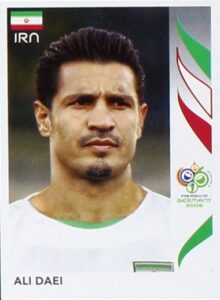 With at least two games in which Ronaldo will most likely feature, it’s possible for the records to keep on tumbling, and one that’s been in everyone’s sights (including surely Ronaldo’s) in recent years has been Ali Daei’s international goalscoring record of 109 goals. Now sitting on 106, Ronaldo could feasibly add this to his record haul, but, again, given the games that lie ahead, it won’t be easy – but then scoring 106 goals isn’t easy in itself and if there is one man/machine that can do it, it’s surely Europe’s G.O.A.T. Ronaldo also currently sits two behind Karel Poborsky on most assists in the Euros with 6 and one behind Zidane et al for most penalties scored – a hugely feasible 2, whilst Ronaldo would need to feature in every game through to the semi-finals to surpass Sergio Ramos as the most capped European international. Whilst there’s not much you’d put past this superhuman, Jude Bellingham and Johan Vonlanthen can breathe a sigh of relief that their youngest player records are secure and Michel Platini’s record of 9 goals in a single tournament will need a gargantuan effort even from Ronaldo. But if Ronaldo wants to add another record to his haul, how about fastest goal? I’ll be setting my stopwatch for 66 seconds when Portugal take on Germany on Saturday and I wouldn’t bet against him. Who knows, maybe even Messi will be watching on to see what other records his rival sets.
With at least two games in which Ronaldo will most likely feature, it’s possible for the records to keep on tumbling, and one that’s been in everyone’s sights (including surely Ronaldo’s) in recent years has been Ali Daei’s international goalscoring record of 109 goals. Now sitting on 106, Ronaldo could feasibly add this to his record haul, but, again, given the games that lie ahead, it won’t be easy – but then scoring 106 goals isn’t easy in itself and if there is one man/machine that can do it, it’s surely Europe’s G.O.A.T. Ronaldo also currently sits two behind Karel Poborsky on most assists in the Euros with 6 and one behind Zidane et al for most penalties scored – a hugely feasible 2, whilst Ronaldo would need to feature in every game through to the semi-finals to surpass Sergio Ramos as the most capped European international. Whilst there’s not much you’d put past this superhuman, Jude Bellingham and Johan Vonlanthen can breathe a sigh of relief that their youngest player records are secure and Michel Platini’s record of 9 goals in a single tournament will need a gargantuan effort even from Ronaldo. But if Ronaldo wants to add another record to his haul, how about fastest goal? I’ll be setting my stopwatch for 66 seconds when Portugal take on Germany on Saturday and I wouldn’t bet against him. Who knows, maybe even Messi will be watching on to see what other records his rival sets.
 Moments That Could Have Changed Football Forever is a detailed study of the ‘what-if’ moments that have shaped football and what the alternative could have been.
Moments That Could Have Changed Football Forever is a detailed study of the ‘what-if’ moments that have shaped football and what the alternative could have been.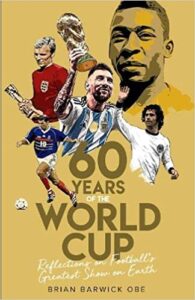 60 Years of the World Cup is a personal, nostalgic, fun and frank reflection on the author’s six-decade association with football’s biggest showpiece.
60 Years of the World Cup is a personal, nostalgic, fun and frank reflection on the author’s six-decade association with football’s biggest showpiece.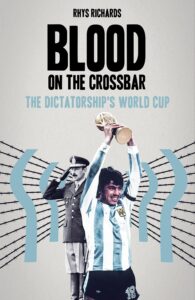 18 December 2022 – the Lusail Stadium. Lionel Messi receives the FIFA World Cup trophy after one of the most dramatic finals in the competitions history. This is Argentina’s, La Albiceleste (The White and Sky Blue), third triumph following wins in 1978 and 1986. However, for all the magnificence of the final, the first World Cup to be held in the Arab world has been a controversial one even from the point Qatar were awarded the event back in December 2010. Rumours circulated how votes had been ‘bought’ to ensure the tiny but incredibly wealthy state became hosts, with many around the globe pointing to Qatar’s human rights record as a significant and compelling reason for the country to be stripped of the 2022 event.
18 December 2022 – the Lusail Stadium. Lionel Messi receives the FIFA World Cup trophy after one of the most dramatic finals in the competitions history. This is Argentina’s, La Albiceleste (The White and Sky Blue), third triumph following wins in 1978 and 1986. However, for all the magnificence of the final, the first World Cup to be held in the Arab world has been a controversial one even from the point Qatar were awarded the event back in December 2010. Rumours circulated how votes had been ‘bought’ to ensure the tiny but incredibly wealthy state became hosts, with many around the globe pointing to Qatar’s human rights record as a significant and compelling reason for the country to be stripped of the 2022 event.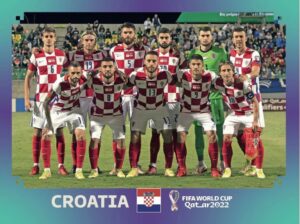 Croatia 2 (2) – (1) 1 Morocco (Khalifa International Stadium, Al Rayyan)
Croatia 2 (2) – (1) 1 Morocco (Khalifa International Stadium, Al Rayyan)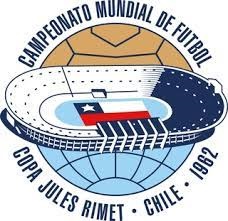 I was born in a World Cup year (1962) but that was two months after Brazil completed a 3-1 victory over Czechoslovakia. 1966, despite my dad’s insistence that I watched the final, holds no memories at all. It wasn’t until 1970 that I have any vague recollection and that was on holiday in Torquay when the whole hotel, staff and guests, gathered to see England lose 3-2 and give up their title as World Champions. Four years later (given World Cups were held in summer prior to 2022), the heavy rain that affected the tournament in West Germany stands out and whilst the hosts won 2-1 in the final I was carrying out my cricket scoring duties for my dad’s team away at Chipstead & Coulsdon so seeing very little of the action. 1978 was O-level year and I readily admit I had more interest in the events in Argentina than my text books. I remember watching the final mesmerised by the tickertape that showered down from the stands, willing the Netherlands to win – alas it was not to be as Argentina won 3-1 in extra time.
I was born in a World Cup year (1962) but that was two months after Brazil completed a 3-1 victory over Czechoslovakia. 1966, despite my dad’s insistence that I watched the final, holds no memories at all. It wasn’t until 1970 that I have any vague recollection and that was on holiday in Torquay when the whole hotel, staff and guests, gathered to see England lose 3-2 and give up their title as World Champions. Four years later (given World Cups were held in summer prior to 2022), the heavy rain that affected the tournament in West Germany stands out and whilst the hosts won 2-1 in the final I was carrying out my cricket scoring duties for my dad’s team away at Chipstead & Coulsdon so seeing very little of the action. 1978 was O-level year and I readily admit I had more interest in the events in Argentina than my text books. I remember watching the final mesmerised by the tickertape that showered down from the stands, willing the Netherlands to win – alas it was not to be as Argentina won 3-1 in extra time.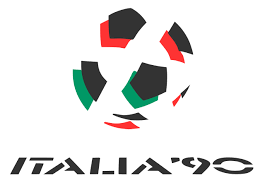 1990 saw me in my own place with my then wife and as an England fan their progress was keenly followed, World in Motion et al. The final was watched at home but was an incredibly drab affair, the only consolation being that West Germany beat the dreaded Argentinians. England failed to make it to the USA in ’94 and I failed to watch the final, a tournament I just couldn’t get into.
1990 saw me in my own place with my then wife and as an England fan their progress was keenly followed, World in Motion et al. The final was watched at home but was an incredibly drab affair, the only consolation being that West Germany beat the dreaded Argentinians. England failed to make it to the USA in ’94 and I failed to watch the final, a tournament I just couldn’t get into.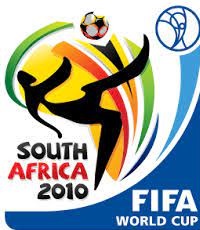 The 2010 tournament saw it hosted by South Africa, where England managed to limp through to the last sixteen only to be dumped out 4-1 by Germany, with us all screaming at our tv’s as Frank Lampard’s ‘ghost’ goal vanished into the ether. Notable for Luis Suarez unsporting celebration of the missed Ghana penalty and Netherlands physical approach in the final, it was another final watched sat at home, with my playing days long behind me.
The 2010 tournament saw it hosted by South Africa, where England managed to limp through to the last sixteen only to be dumped out 4-1 by Germany, with us all screaming at our tv’s as Frank Lampard’s ‘ghost’ goal vanished into the ether. Notable for Luis Suarez unsporting celebration of the missed Ghana penalty and Netherlands physical approach in the final, it was another final watched sat at home, with my playing days long behind me.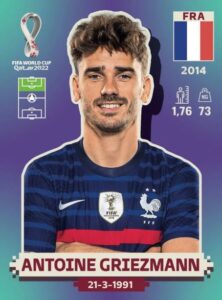 France 2 (1) – (0) 0 Morocco (Al Bayt Stadium, Al Khor)
France 2 (1) – (0) 0 Morocco (Al Bayt Stadium, Al Khor)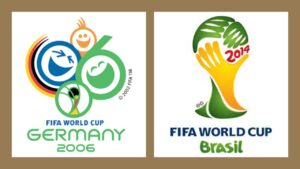 Croatia v Brazil (Education City Stadium, Al Rayyan)
Croatia v Brazil (Education City Stadium, Al Rayyan)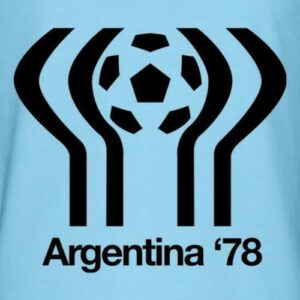 Netherlands v Argentina (Lusail Iconic Stadium, Lusail)
Netherlands v Argentina (Lusail Iconic Stadium, Lusail) Jon Driscoll’s book The Fifty aims to spotlight fifty footballers who have been most influential in terms of shaping the history of the beautiful game. I always love these sorts of books and features but never envy the author the task of selecting the chosen few and it’s fascinating to see just who gets picked, and equally who doesn’t.
Jon Driscoll’s book The Fifty aims to spotlight fifty footballers who have been most influential in terms of shaping the history of the beautiful game. I always love these sorts of books and features but never envy the author the task of selecting the chosen few and it’s fascinating to see just who gets picked, and equally who doesn’t.
 Messi or Ronaldo? Ronaldo or Messi? Forget nature v nurture, leave v remain, Corrie v EastEnders, the most hotly contested question of our day and age comes down to the choice between a footballer from Argentina and one from Portugal (who said that society hasn’t progressed?). And it is a question that can divide opinion even among the most united in all other opinions. Messi devotees will point to his superior assists, his dribbling, his team play and his greater individual awards, whilst Ronaldo supporters will cite his club goals, his success in multiple leagues, his incredible athleticism and a superior international record. And whilst debates over who is better are likely to continue for as long as these two keep going – or one of them retires – Ronaldo has ensured his status as ‘greatest of all time’ in Euros history, with a host of records tumbling in his first outing in Euro 2020. Sorry, Messi, this is one arena in which you can’t compete with Ronaldo, in fact no one can.
Messi or Ronaldo? Ronaldo or Messi? Forget nature v nurture, leave v remain, Corrie v EastEnders, the most hotly contested question of our day and age comes down to the choice between a footballer from Argentina and one from Portugal (who said that society hasn’t progressed?). And it is a question that can divide opinion even among the most united in all other opinions. Messi devotees will point to his superior assists, his dribbling, his team play and his greater individual awards, whilst Ronaldo supporters will cite his club goals, his success in multiple leagues, his incredible athleticism and a superior international record. And whilst debates over who is better are likely to continue for as long as these two keep going – or one of them retires – Ronaldo has ensured his status as ‘greatest of all time’ in Euros history, with a host of records tumbling in his first outing in Euro 2020. Sorry, Messi, this is one arena in which you can’t compete with Ronaldo, in fact no one can. All-time top scorer at the Euros – I must admit to some surprise that the goalscoring record for the Euros previously stood at 9, held by Michel Platini. Ronaldo obviously shared my surprise and sought to boost that number to a healthier total by bagging a brace, and in doing so catapulting himself to the top of another chart and putting some daylight between himself and his competitors. Now on 11 goals, you wouldn’t bet against that number rising, though Portugal perhaps don’t have the easiest of matches coming up to get out of the group. And despite scoring 11 goals, Ronaldo has only netted against five different opponents (Greece, Netherlands, Czech Republic, Hungary and Wales), so he’ll have to break that if he’s to improve his tally against France and Germany. Incidentally, in terms of most goals including qualifying, no guesses for who claims that record – Ronaldo holds some 27-goal advantage over his nearest rival, Zlatan Ibrahimovic, so I suspect this one may stand the test of time, as perhaps will his record as Portugal’s top goalscorer, where he sits almost 60 goals ahead of Pauleta (and some 40 caps ahead of Joao Moutinho).
All-time top scorer at the Euros – I must admit to some surprise that the goalscoring record for the Euros previously stood at 9, held by Michel Platini. Ronaldo obviously shared my surprise and sought to boost that number to a healthier total by bagging a brace, and in doing so catapulting himself to the top of another chart and putting some daylight between himself and his competitors. Now on 11 goals, you wouldn’t bet against that number rising, though Portugal perhaps don’t have the easiest of matches coming up to get out of the group. And despite scoring 11 goals, Ronaldo has only netted against five different opponents (Greece, Netherlands, Czech Republic, Hungary and Wales), so he’ll have to break that if he’s to improve his tally against France and Germany. Incidentally, in terms of most goals including qualifying, no guesses for who claims that record – Ronaldo holds some 27-goal advantage over his nearest rival, Zlatan Ibrahimovic, so I suspect this one may stand the test of time, as perhaps will his record as Portugal’s top goalscorer, where he sits almost 60 goals ahead of Pauleta (and some 40 caps ahead of Joao Moutinho). With at least two games in which Ronaldo will most likely feature, it’s possible for the records to keep on tumbling, and one that’s been in everyone’s sights (including surely Ronaldo’s) in recent years has been Ali Daei’s international goalscoring record of 109 goals. Now sitting on 106, Ronaldo could feasibly add this to his record haul, but, again, given the games that lie ahead, it won’t be easy – but then scoring 106 goals isn’t easy in itself and if there is one man/machine that can do it, it’s surely Europe’s G.O.A.T. Ronaldo also currently sits two behind Karel Poborsky on most assists in the Euros with 6 and one behind Zidane et al for most penalties scored – a hugely feasible 2, whilst Ronaldo would need to feature in every game through to the semi-finals to surpass Sergio Ramos as the most capped European international. Whilst there’s not much you’d put past this superhuman, Jude Bellingham and Johan Vonlanthen can breathe a sigh of relief that their youngest player records are secure and Michel Platini’s record of 9 goals in a single tournament will need a gargantuan effort even from Ronaldo. But if Ronaldo wants to add another record to his haul, how about fastest goal? I’ll be setting my stopwatch for 66 seconds when Portugal take on Germany on Saturday and I wouldn’t bet against him. Who knows, maybe even Messi will be watching on to see what other records his rival sets.
With at least two games in which Ronaldo will most likely feature, it’s possible for the records to keep on tumbling, and one that’s been in everyone’s sights (including surely Ronaldo’s) in recent years has been Ali Daei’s international goalscoring record of 109 goals. Now sitting on 106, Ronaldo could feasibly add this to his record haul, but, again, given the games that lie ahead, it won’t be easy – but then scoring 106 goals isn’t easy in itself and if there is one man/machine that can do it, it’s surely Europe’s G.O.A.T. Ronaldo also currently sits two behind Karel Poborsky on most assists in the Euros with 6 and one behind Zidane et al for most penalties scored – a hugely feasible 2, whilst Ronaldo would need to feature in every game through to the semi-finals to surpass Sergio Ramos as the most capped European international. Whilst there’s not much you’d put past this superhuman, Jude Bellingham and Johan Vonlanthen can breathe a sigh of relief that their youngest player records are secure and Michel Platini’s record of 9 goals in a single tournament will need a gargantuan effort even from Ronaldo. But if Ronaldo wants to add another record to his haul, how about fastest goal? I’ll be setting my stopwatch for 66 seconds when Portugal take on Germany on Saturday and I wouldn’t bet against him. Who knows, maybe even Messi will be watching on to see what other records his rival sets.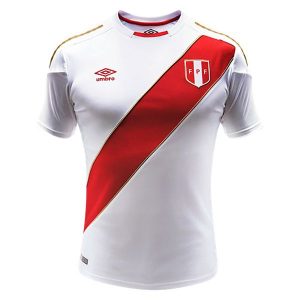 Only one place to start really and that is the last game of Thursday’s action, involving Argentina and Croatia at the Nizhny Novgorod Stadium.
Only one place to start really and that is the last game of Thursday’s action, involving Argentina and Croatia at the Nizhny Novgorod Stadium.